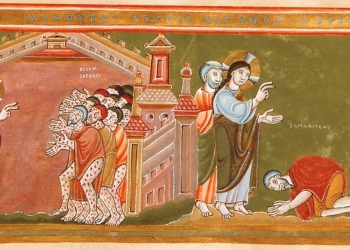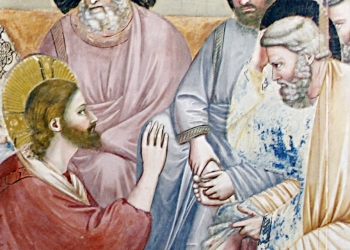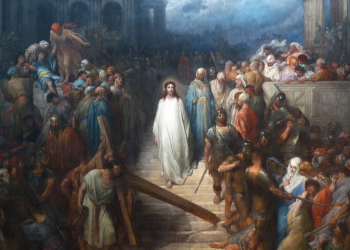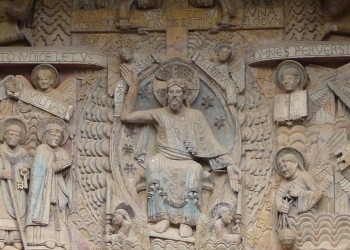September 15, 2024
XXIV Sunday of Ordinary Time B
Mk 8:27-35
With the understanding that the Lord is the way and meaning of the Christian life, St. Paul says that nothing is worth more than knowing Him, and everything else is a waste (Phil. 3:7-8).
It is a never-ending journey, much like any relationship: the other is always to be known anew, and what we know about them is never enough, never everything. The people we know remain an open mystery that we cannot get a hold of fully.
For this to happen, for us to know the Lord, He chose to reveal Himself: He enters into history, draws near, communicates with us, and establishes a covenant with us. The whole salvation history testifies to this desire of God to make Himself known, to not remain a stranger to man.
In today's Gospel passage (Mk. 8:27-35) we see that Jesus is interested in our knowledge of Him: He wants us to know Him, and He also wants our knowledge of Him to be “correct,” just as the words of the healed deaf-mute in last Sunday's Gospel (Mk. 7:35) were correct.
We observe that Jesus questions His disciples about their understanding of Him and how they perceive Him (Mk 8:29).
At first, it seems that the time the disciples have spent with Jesus has given them a solid understanding of who He is, as Peter's response is correct. Peter identifies Jesus as the Christ (Mark 8:29), and he is right in this assessment. However, the remainder of the passage shows us that truly knowing Jesus goes beyond simply providing an accurate description; it is not something to be taken for granted, and an exact definition alone does not equate to a complete understanding of Him.
What hinders our journey to knowing Him is not our limitations, sins, or illnesses; quite the contrary, Jesus reveals Himself in a unique way to those who are sick, those who have done wrong, and those who cannot cope.
We could say that the one who comes to know Jesus is the one who lets himself be saved by Him, who allows himself to be healed
The biggest obstacle to knowing Jesus is often our idea of God, what we presume to know about Him.
It is an obstacle because we usually, more or less unconsciously, fall into the temptation we have always had: to reduce our knowledge and our relationship with God to a “reasonable” idea, to make up an image of God that falls within the parameters of human logic, that meets the normal criteria of a balanced religiosity: it is what Jesus calls thinking according to men ("Get behind me, Satan. You are thinking not as God does, but as human beings do” - Mark 8:33).
We could call it the temptation of the golden calf, to refer to a biblical image.
At this juncture in the Gospel, Jesus starts to reveal a different understanding of God. He begins to instruct His disciples to think as God does, explaining that "the Son of Man must suffer greatly" (Mark 8:31). This portrayal of God is very different from human expectations and criteria—a God who does not shy away from what we would prefer to avoid. Confronted with this new image of God, Peter reacts as any of us might, feeling scandalized ("Peter took him aside and began to rebuke him" - Mk 8:32).
Jesus does not unveil a God that fits our imagined expectations
So how to know Jesus? How to know the God that Jesus reveals to us?
Jesus reveals to us that to know him we must necessarily follow him and follow him on the way of Easter: “Whoever wishes to come after me, must deny himself, take up his cross and follow me” (Mark 8:34).
To know Him is not something that happens sitting down, like for scholastic knowledge, but on the way, on the road, in life. To know Jesus, one has to live what He lives, to experience that losing one's life for love leads to true life, that giving everything makes one rich, that welcoming the other, enlarges the spaces of existence, “for whoever wants to save his life will lose it; but whoever loses his life for my sake and the gospel's sake will save it” - Mk 8:35)
Not an exact definition, but humbly going after Him until the day His Face will be fully revealed to us.
+ Pierbattista











